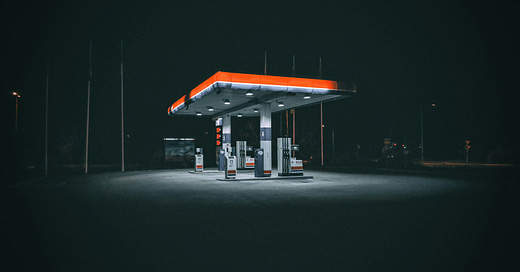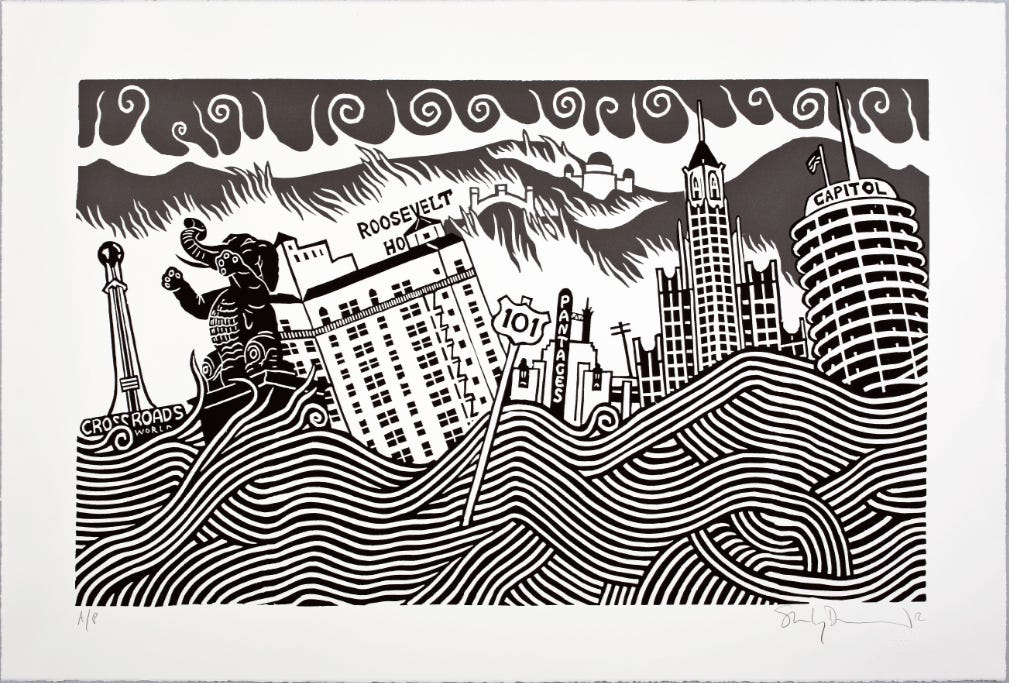The Dark Irony of Gas Panic
Watching lines of cars at gas stations in a climate emergency has me feeling a certain way.
We are, as a culture, inclined to ignore ironies. We move through calamities as if they are accidents, unpredicted twists of fate. But nothing about the environmental crisis should surprise us. It has been waiting for us, inching closing, now running. On the eve of Hurricane Helene and in the days afterward I witnessed long lines, snaking outside gas stations. The frenzy for fuel is a spectacle of absurdity, a dark irony, literary in scope. Here we are, trembling in our SUVs, jonesing for the very thing that brought disaster upon us.
The automobile is the symbol of American independence. To drive is to be free. To drive is to autonomous. But this faux sense of freedom has actually created a deep and unbreakable dependence on the oil industry.
While we have been without running water and power after the Hurricane we have been able to improvise both. Neighbors who have wells, rain barrels that collect water, fire to cook, candles and flashlights to see. But none of us can generate petroleum. We are simply babies at the teat.
We are helpless like the babe and chronic like the addict. Our hands are slick with crude oil, cling to a dependency we may question, but cannot change. Each mile we drive, each engine we idle, binds us more tightly to a system we pretend we control. We ignore the slow violence, the smog curling into our lungs, the wars fought far from our shores.
George Monbiot says: "Preventing runaway climate change requires nothing less than a reorganization of human society. We need to stop focusing on short-term growth and start focusing on long-term survival."
The moral duty to torment our politicians on this issue is not abstract. It isn't something to be outsourced to another generation. It is ours, and it is to be a persistent, unrelenting thorn in the side of every politician, especially those who believe in climate change and who are not doing anything. They are masters of inertia. We breathe the air they are fouling. We are the ones who will see the waters rise, the land burn, the rivers flood our neighborhoods. We torment because they won't. We demand action because the luxury of waiting has expired. The earth isn’t waiting to change, and neither should we.
One thing we have witnessed in Western North Carolina over the past couple of weeks is how the care and interest of people far and wide has not been matched by the coverage on the major networks and newspapers. Yet the social media posts of locals get millions of views. Why is that?





